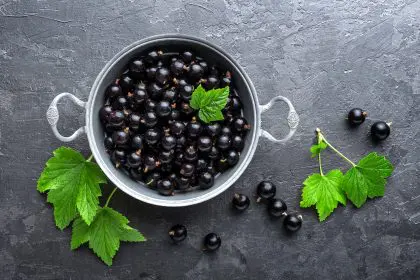The liver serves as your body’s primary detoxification center, processing everything from nutrients to toxins while playing a crucial role in metabolism and fat burning. When excess fat accumulates in this vital organ, it can significantly impact your overall health, energy levels, and ability to maintain a healthy weight.
Fatty liver affects millions of people worldwide, often developing silently without obvious symptoms until it reaches advanced stages. This condition occurs when fat comprises more than 5-10% of the liver’s weight, creating inflammation and potentially leading to more serious health complications if left unaddressed.
The connection between liver health and weight management runs deeper than many people realize. A healthy liver efficiently processes fats, regulates blood sugar, and produces bile necessary for proper digestion. When liver function becomes compromised by excess fat accumulation, these processes slow down, making weight loss more difficult and metabolic health more challenging to maintain.
Modern dietary patterns, combined with sedentary lifestyles and exposure to environmental toxins, have created an epidemic of liver-related health issues. However, specific nutritional strategies can help reverse fatty liver accumulation while simultaneously supporting healthy weight loss and improved metabolic function.
Cruciferous vegetables activate liver detoxification
The first powerful strategy involves incorporating specific vegetables that contain compounds designed to support liver detoxification pathways. Cruciferous vegetables like broccoli, cauliflower, Brussels sprouts, and cabbage contain sulfur compounds called glucosinolates, which help activate phase II liver detoxification enzymes.
These vegetables also provide indole-3-carbinol and sulforaphane, two compounds that have been studied for their ability to support liver function and reduce inflammation. When consumed regularly, these nutrients help the liver process and eliminate toxins more efficiently, reducing the burden on this vital organ and allowing it to focus on fat metabolism.
The fiber content in cruciferous vegetables also plays a crucial role in liver health by binding to bile acids and promoting their elimination. This process forces the liver to use stored cholesterol to produce new bile acids, effectively supporting both liver detoxification and cholesterol management.
Preparation methods can significantly impact the bioavailability of these beneficial compounds. Light steaming or eating these vegetables raw preserves the highest levels of active compounds, while overcooking can reduce their therapeutic potential. Adding a small amount of healthy fat, such as olive oil, can enhance the absorption of fat-soluble vitamins present in these vegetables.
Healthy fats support liver regeneration
The second strategy focuses on incorporating specific types of fats that support liver health rather than contributing to fat accumulation. Omega-3 fatty acids, particularly those found in fatty fish, walnuts, and flaxseeds, have been shown to reduce liver inflammation and support the regeneration of healthy liver cells.
Medium-chain triglycerides (MCTs), found in coconut oil and MCT oil, provide a unique advantage for liver health. Unlike long-chain fatty acids that require bile for digestion, MCTs are absorbed directly into the portal circulation and transported straight to the liver, where they can be quickly converted to energy rather than stored as fat.
Extra virgin olive oil contains powerful polyphenols and vitamin E, which help protect liver cells from oxidative damage while supporting healthy fat metabolism. The monounsaturated fats in olive oil have been associated with reduced liver fat accumulation and improved insulin sensitivity.
Avocados provide another excellent source of beneficial fats, along with glutathione, a powerful antioxidant that supports liver detoxification. The combination of healthy fats and antioxidants in avocados makes them particularly valuable for supporting liver health and metabolic function.
Protein timing optimizes fat burning
The third strategy involves strategic protein consumption to support liver function and enhance fat burning. The liver requires adequate amino acids to produce enzymes, transport proteins, and support detoxification processes. Consuming high-quality protein at specific times can maximize these benefits while supporting healthy weight loss.
Morning protein consumption helps stabilize blood sugar levels and provides the liver with essential amino acids needed for optimal function throughout the day. This approach also supports healthy cortisol patterns and can improve insulin sensitivity, both crucial factors for maintaining healthy liver function and body weight.
Lean proteins such as wild-caught fish, grass-fed meats, and plant-based options like hemp seeds and quinoa provide complete amino acid profiles without excessive saturated fat that could contribute to liver fat accumulation. The thermic effect of protein also increases metabolic rate, supporting natural fat burning processes.
Timing protein intake around physical activity can further enhance its benefits for liver health and weight management. Post-exercise protein consumption supports muscle recovery while providing the liver with amino acids needed for metabolic processes and tissue repair.
Intermittent fasting enhances liver function
The fourth strategy involves strategic meal timing to give the liver adequate time for fat processing and cellular repair. Intermittent fasting approaches have been shown to support liver health by allowing time for autophagy, the cellular cleanup process that removes damaged components and supports regeneration.
During fasting periods, the liver shifts from processing incoming nutrients to focusing on fat metabolism and detoxification. This metabolic switch can help reduce liver fat accumulation while improving insulin sensitivity and metabolic flexibility.
A 12-16 hour overnight fast provides sufficient time for these beneficial processes to occur without creating excessive stress on the body. This approach aligns with natural circadian rhythms and supports healthy hormone production, including growth hormone and insulin regulation.
The eating window should focus on nutrient-dense foods that support liver function rather than processed foods that increase the liver’s workload. This combination of strategic timing and quality nutrition maximizes the benefits for both liver health and weight management.
Antioxidant-rich foods reduce inflammation
The fifth strategy emphasizes consuming foods high in specific antioxidants that protect liver cells from damage while supporting healthy fat metabolism. Berries, particularly blueberries and cranberries, contain anthocyanins and other polyphenols that have been shown to reduce liver inflammation and support healthy liver enzyme levels.
Green tea provides catechins, particularly epigallocatechin gallate (EGCG), which has been studied for its ability to support liver health and enhance fat oxidation. Regular consumption of green tea has been associated with reduced liver fat accumulation and improved metabolic function.
Turmeric contains curcumin, a powerful anti-inflammatory compound that supports liver health by reducing oxidative stress and inflammation. The bioavailability of curcumin is enhanced when consumed with black pepper or healthy fats, making golden milk or turmeric-spiced dishes particularly beneficial.
Beets contain betalains and nitrates that support liver detoxification pathways while improving circulation and oxygen delivery to tissues. The natural nitrates in beets also support healthy blood pressure and cardiovascular function, which indirectly benefits liver health.
Creating sustainable liver-supporting habits
Successfully implementing these strategies requires a systematic approach that focuses on gradual changes rather than dramatic dietary overhauls. Start by incorporating one or two of these approaches into your current routine, allowing time for your body to adapt before adding additional changes.
Meal planning becomes crucial for maintaining consistency with liver-supporting foods. Preparing cruciferous vegetables in advance, having healthy fats readily available, and planning protein sources can help ensure these beneficial foods become regular parts of your diet rather than occasional additions.
Hydration plays a supporting role in liver health, as adequate water intake helps the liver process and eliminate toxins more efficiently. Adding lemon to water can provide additional liver-supporting compounds while encouraging increased fluid intake throughout the day.
Monitoring your body’s response to these dietary changes can help you identify which strategies provide the most benefit for your individual needs. Improved energy levels, better sleep quality, and gradual weight loss are positive indicators that your liver health is improving.
Long-term benefits extend beyond weight loss
The benefits of supporting liver health through strategic nutrition extend far beyond fat loss and weight management. A healthy liver supports optimal immune function, hormone balance, and cognitive performance, contributing to overall vitality and well-being.
Improved liver function also enhances the body’s ability to process and utilize nutrients from food, making your overall diet more effective for supporting health goals. This improved nutrient utilization can lead to better energy levels, improved mood, and enhanced physical performance.
The anti-inflammatory effects of liver-supporting foods benefit multiple body systems, potentially reducing the risk of chronic diseases and supporting healthy aging. This comprehensive approach to health through liver support represents an investment in long-term wellness that extends far beyond immediate weight loss goals.
Consistency with these nutritional strategies can help establish sustainable habits that support liver health throughout life, creating a foundation for maintaining healthy weight and optimal metabolic function as you age.


















